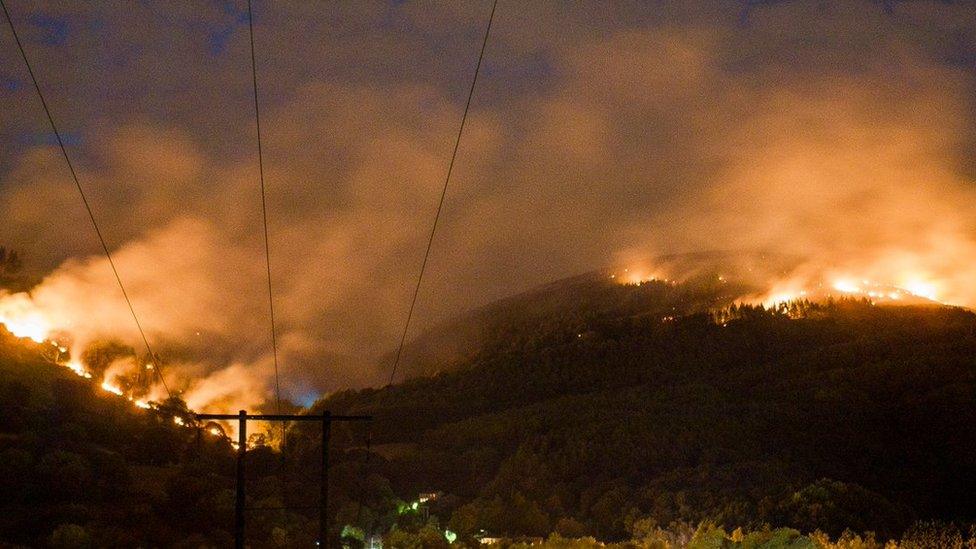Fire services count costs of Wales' summer wildfires
- Published
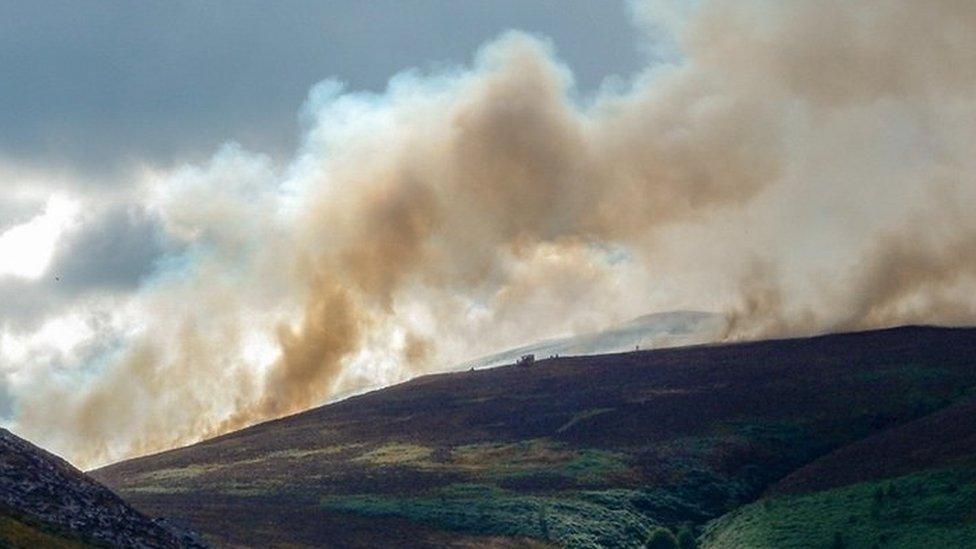
Fires such as this one at Llantysilio in Denbighshire cost the fire services hundreds of thousands of pounds
July and August were more expensive for Wales' fire services than the 12 months of each of the last four years.
North Wales Fire Service spent almost £300,000 battling one fire, while the south Wales service's expenditure at least trebled compared to previous years in the space of just two months.
Police suggested at the time that some fires were started deliberately.
A forensic psychologist told BBC Wales that arsonists starting these types of fires often do so through boredom.
As wildfires ravaged forests and grassland across the country, wildlife was destroyed and homes were evacuated.
In July, 15 homes were evacuated as crews fought a mile-long mountain fire at Mynydd Cilgwyn in Carmel, near Caernarfon. One of those evacuated was Fiona Griffiths.
"It was quite scary when I actually found out that the fire was going to surround the house. Thank goodness for the fire crews," she had said at the time.
"At first the fire did seem to be diverting away from the house so we seemed a little bit happy about that. But the wind changed and it was all panic then."
Fiona Griffiths' home near Carmel was surrounded by the fire in July
Despite being asked the same questions, information provided by each fire service varied slightly from the other due to different ways of collecting data.
South Wales
South Wales Fire and Rescue Service (SWFRS) had a very busy summer - figures reveal July and August were three times more expensive than the 12 months of 2017, 2016, 2015 and 2014.
The fire service attended more grass fires in July and August than in the whole of 2017 or 2016.
A spokesperson for the fire service said that while the financial costs of tackling the fires was "evident", the costs of the "tragic loss of wildlife" and damage to the ecosystems are "difficult to estimate"
"What is clear is that the impact has been devastating and will take a period of time to rebuild," the spokesperson added.
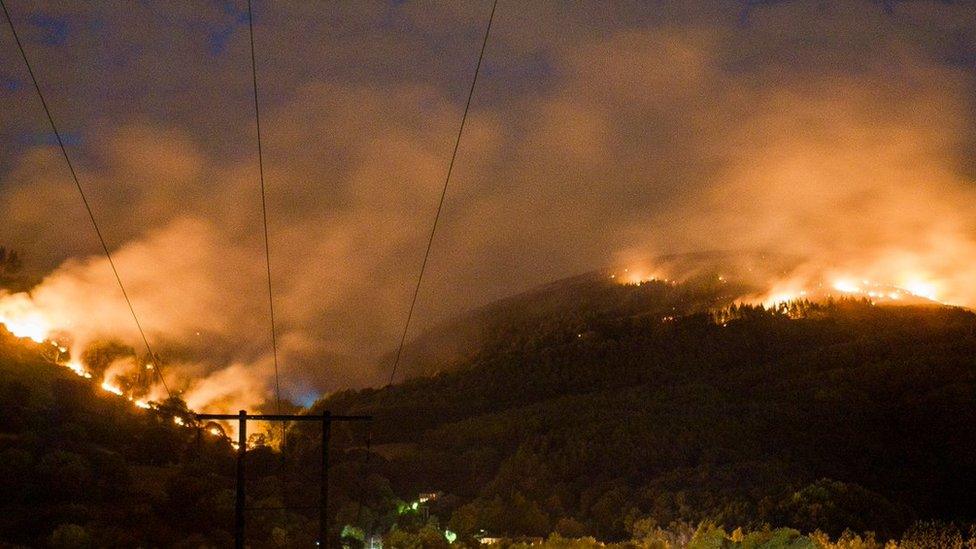
Crews and a helicopter battled the first fire on Twmbarlwm mountain for five days
One of the biggest fires seen across Wales was at Twmbarlwn Mountain, which burned for over two weeks. Police said at the time that they believed the fire was started deliberately, and issued warnings after firefighters reported being abused as they tackled the blaze.
Caerphilly MP Wayne David said: "The police need to be given our full support in their investigations and we all need to recognise that fighting these fires is a huge drain on the resources of the fire service."
North Wales
North Wales Fire and Rescue Service (NWFRS) has revealed that it spent an additional £400,000 in personnel costs in July and August, including £290,000 on a single fire at Llantysilio in Denbighshire, which burned for 40 days.
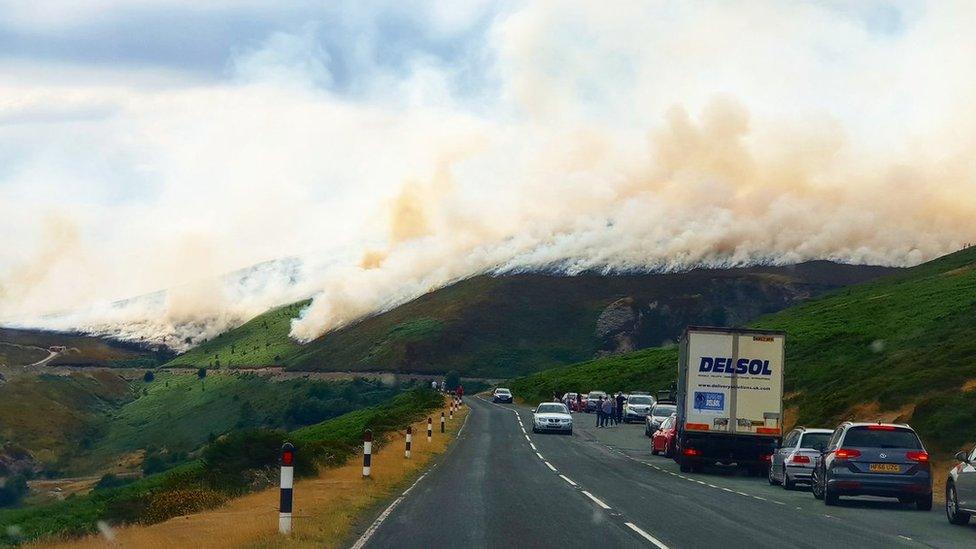
The fire at Llantysilio could be seen from the A55 Horseshoe Pass near Llangollen
The fire service spent more money on turnout and appliance costs in July and August than the whole of 2016, 2015 or 2014. NWFRS had no reliable data for 2017 due to "ongoing technical issues".
Stuart Millington, senior operations manager at NWFRS, said this year's fires had had a "particularly significant" impact on the service's budget.
"These wild fires can place tremendous pressure on our resources as access is often extremely difficult and our attendance can be required over a protracted period of time to bring them under control - and this was particularly true of the Llantysilio fire, when we also mobilised crews from further afield to ensure the best use of our resources," Mr Millington added.
Mid and West Wales
Mid and West Wales Fire and Rescue Service (MAWWFRS) had a quieter summer relative to other fire services, but July and August were more expensive than the 12 months of 2017, 2016 and 2014.
The fire at Garngoch Common, Gorseinon, on 26 July was the service's most expensive fire, with 185 full-time equivalent hours committed to bring it under control after burning for 27 hours.
A MAWWFRS spokesperson blamed the fires on the weather and said it was "not aware of anti-social behaviour" being responsible.
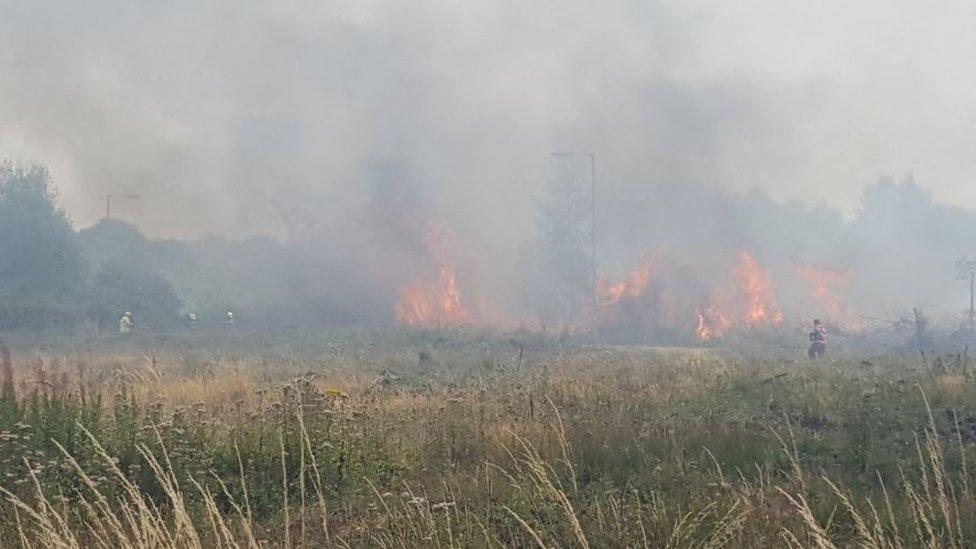
Mid and West Wales Fire and Rescue Service said the fire at Garngoch Common lasted for 27 hours
Why were they started?
Prof Theresa Gannon, a forensic psychologist at the University of Kent, has done research into why people start wildfires.
She said there were "two key candidates": those who are bored, and those who have an "inappropriate interest" in fire. Boredom is the most likely cause for the summer fires, she said.
"It could be stress at school, not so many activities to do or just bored while walking about with friends," Prof Gannon added.
- Published27 July 2018
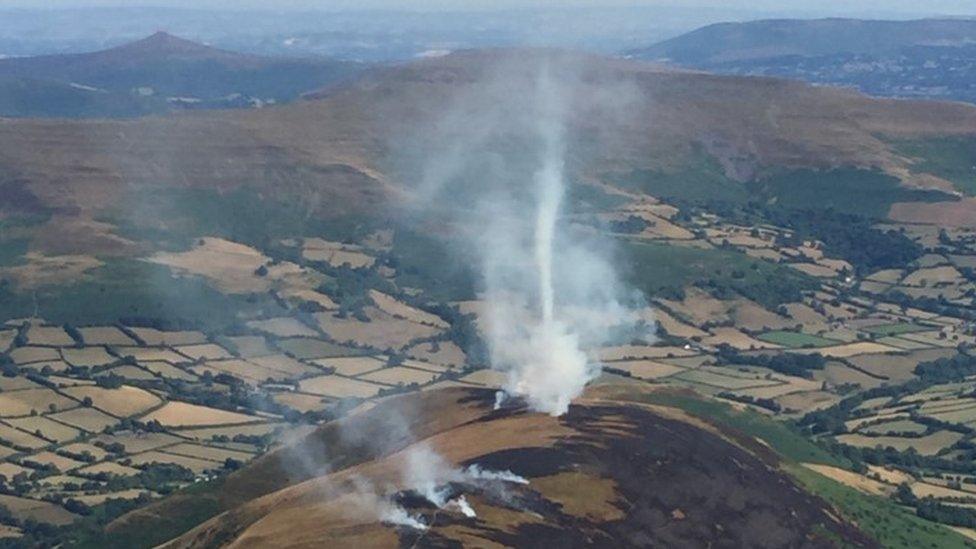
- Published3 July 2018
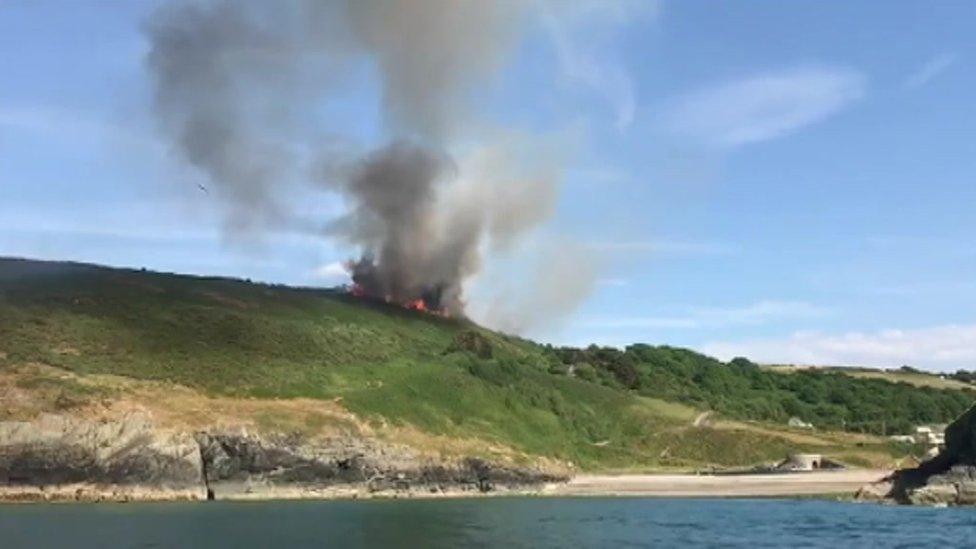
- Published27 July 2018

- Published4 July 2018
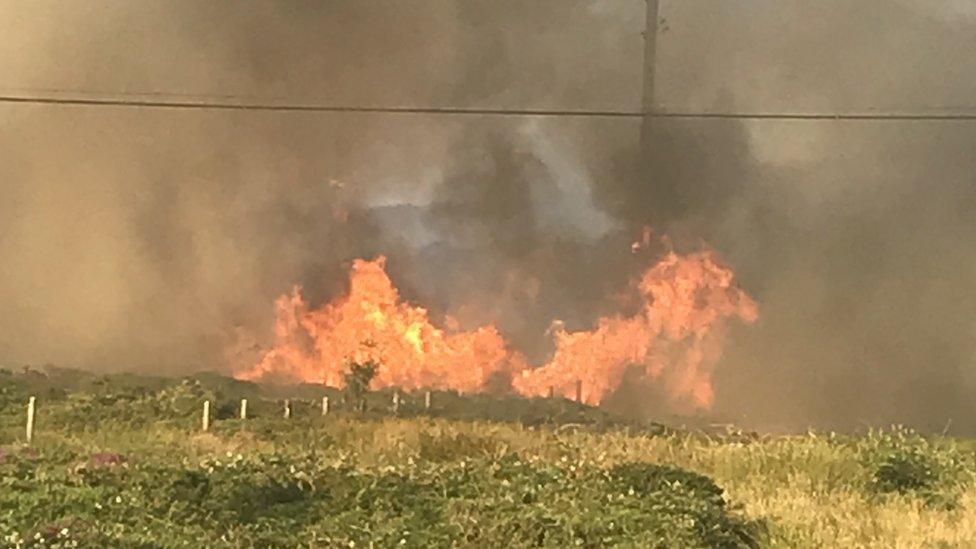
- Published19 July 2018
